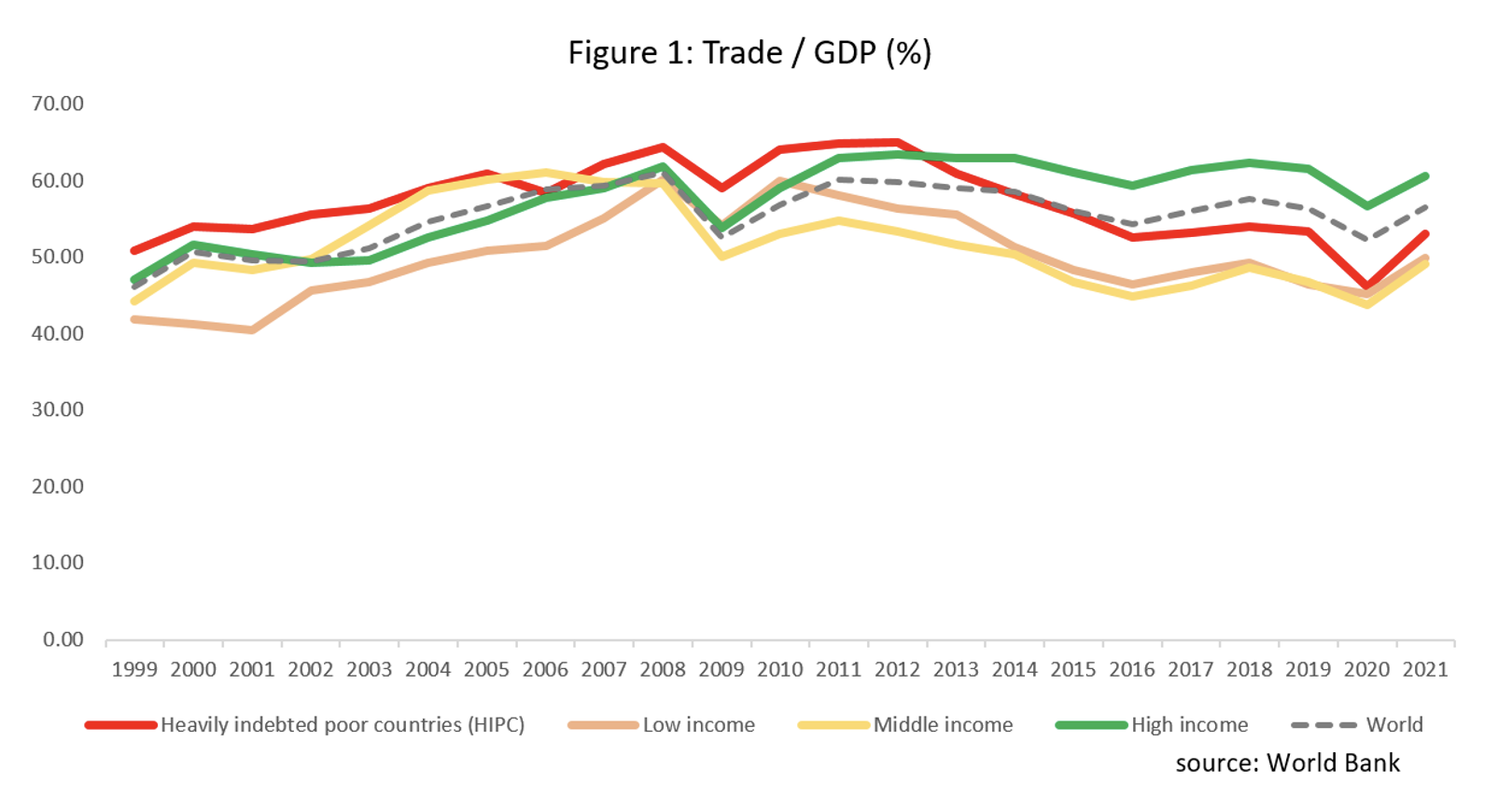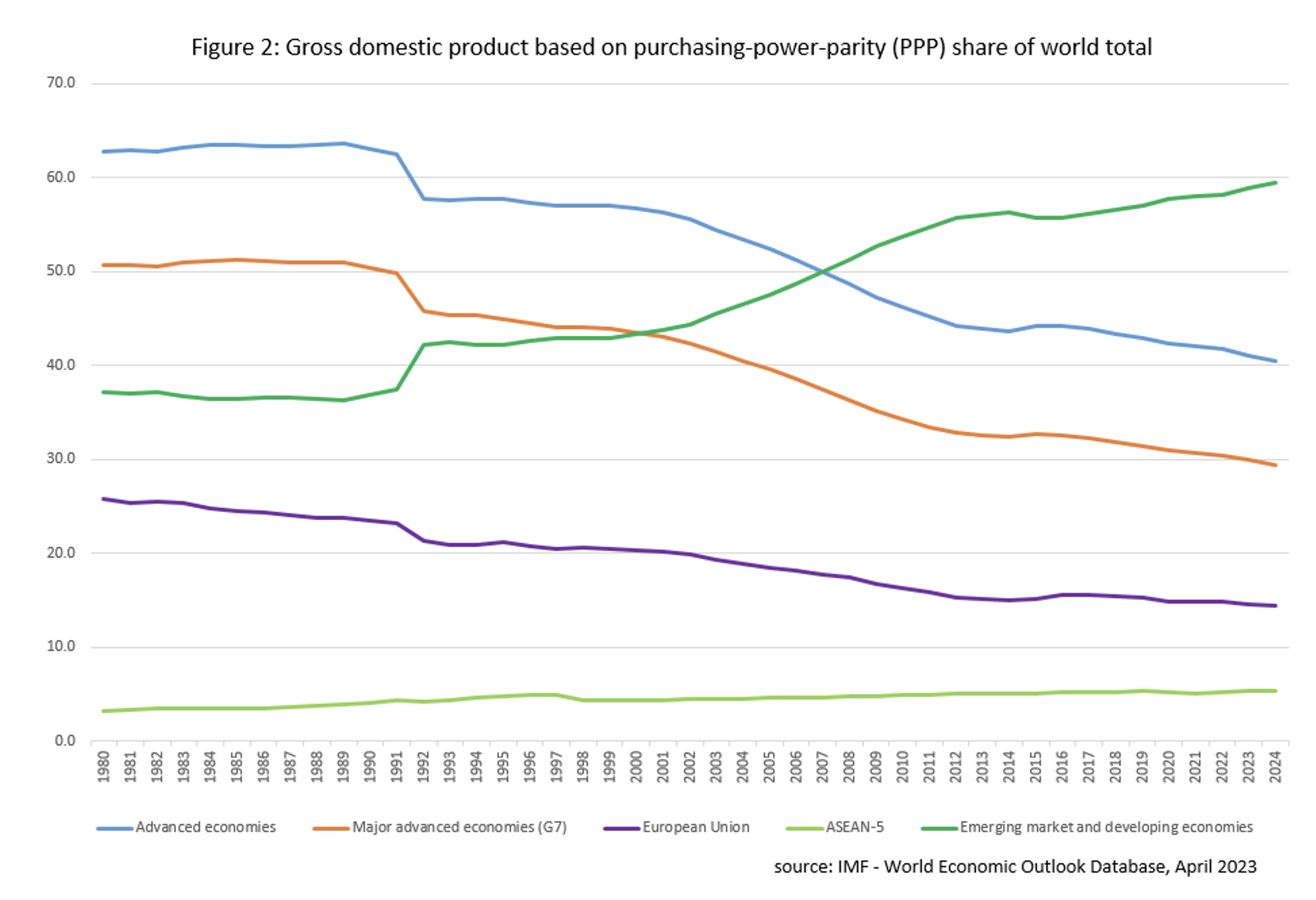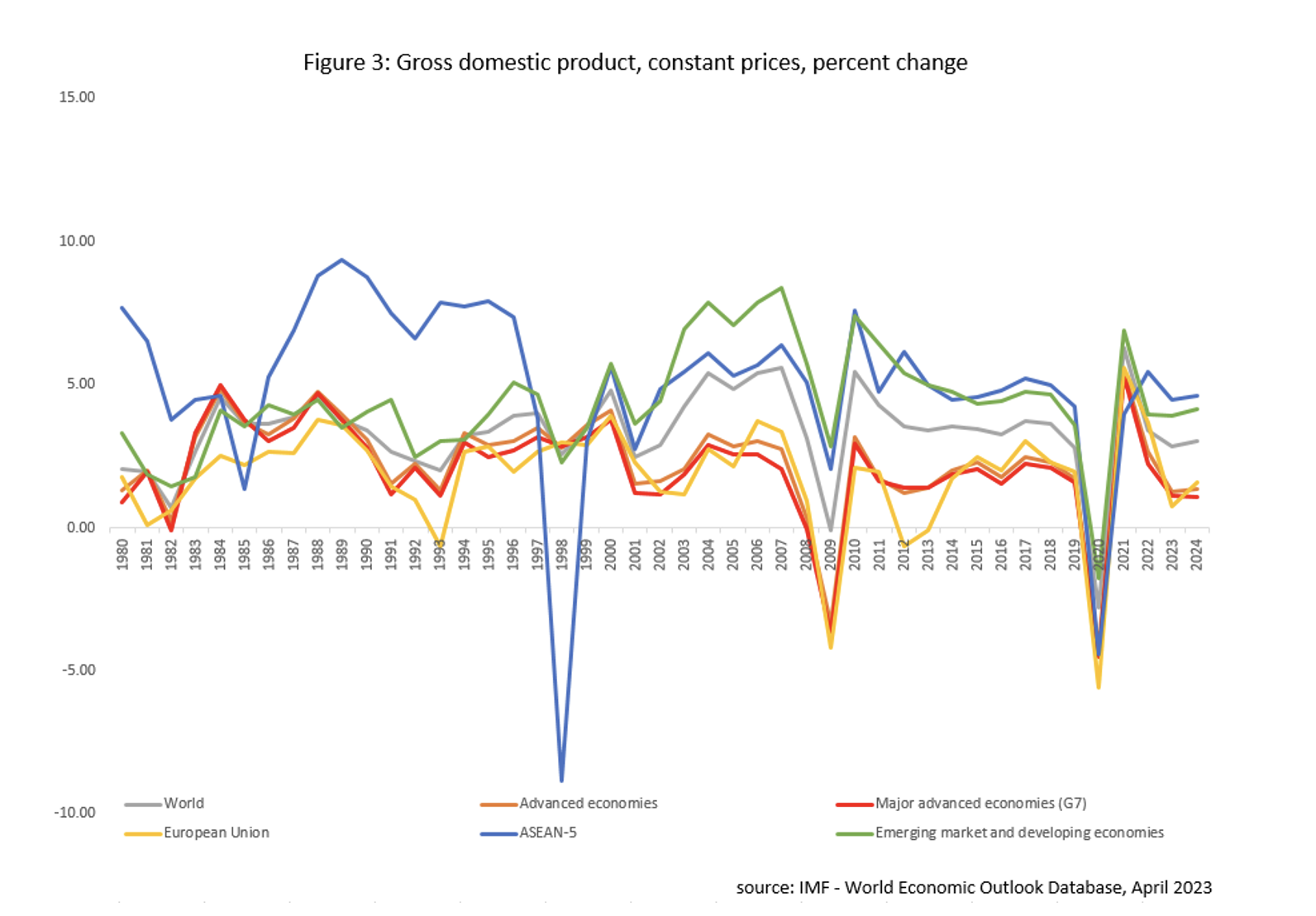:quality(80)/business-review.eu/wp-content/uploads/2023/07/image_6487327.jpg)
One of the concerns and at the same time the major challenges faced by economists in general and economic policymakers, in particular, in the current period is the direction in which it would be effective and sustainable to transform the current architecture of international economic and financial cooperation.
By Leonardo Badea, Deputy Governor of the National Bank of Romania
In the opinion of many researchers and practitioners, the economically and strategically justified motivation for the need to transform the current approach is given by the major syncopes observed during the recent crises. They highlighted that there were, unfortunately, numerous situations in which, precisely during periods of systemic stress in the economy and society, the supply flows of vital goods for the adequate management of the difficulties that arose no longer functioned at the same capacity and cadence.
An objective approach imposes to emphasize as an aside a positive element of maximum importance and relevance: recent crises have also shown the unprecedented solidarity between states, communities, and individuals, the huge and coordinated joint effort to identify possible support measures for those affected, mobilizing resources (financial, technical, productive, logistical, human, etc.) and collaborating in the best possible management of the situation. Beyond these, however, the evidence remains that in numerous situations, long supply chains have malfunctioned.
The objective approach forces us to mention here also the fact that, for a long time before the pandemic crisis and the recent wave of protectionism manifested in some jurisdictions in response to the major intensification of geopolitical tensions, it was precisely these long supply chains that allowed the fruition of competitive advantages of different economies to reduce production costs for a wide range of goods, which not only led to increased international trade, but also allowed local consumers to easily access cheaper or better value products, or with a higher technological level than those available exclusively from local production.
Globalization can be defined as the process by which companies, individuals, and nations become more integrated on a global scale. This process is characterized by the increased flow of goods, services, ideas, and capital across borders.
The phenomenon of globalization, which began in the second half of the last century, took off in the early ‘90s, precisely because it offered obvious advantages in the sense of optimizing production costs and distribution chains through just-in-time solutions and capitalizing on the opportunity of increasingly reduced transport costs. The advantages of globalization have been maintained by sustained economic growth for almost two decades, it has changed mentalities and business models. We have witnessed an unprecedented increase in trade and the flow of people, ideas, and technology, amid economic development and the promotion of a policy of openness to the outside world. Notably, world GDP tripled, but it was a period of growth in all aspects, not just economic. The social impact, as a result of sustained economic growth, was immense; it is estimated that over 1.5 billion people have left the poverty zone (IMF, 2023 Confronting fragmentation where it matters most: trade, debt, and-climate-action).
Many economists, some of them researchers within financial institutions or international economic fora, believe that this mechanism has been an engine of welfare growth for all those connected to the complex and extensive mechanism of multilateral trade and financing flows. It is true that this prosperity that globalization has determined has not had an even distribution, there are critics who state that this process has been accompanied by an increase in inequality. Some of the economists I was referring to above argue that we should make efforts to maintain the mechanisms of globalization. Oversimplified, globalization is seen as the equivalent of the social division of labor, where each country (or community) specializes in those productive activities and exports for which it naturally possesses or has built up over time competitive advantages. From this perspective, just like the division of labor, the mechanisms of globalization favor a more efficient allocation of resources (natural, human, financial).
In Figure 1 presented below it can be observed that, on average at the global level, the value of international trade as a share of GDP experienced a slight downward trend after the maximum recorded before the global financial crisis triggered in 2007. Even though it quickly recovered after the declines generated by the crisis, both in 2010-2011 (after the global financial crisis) and in 2021 (after the initial pandemic shock subsided), it did not exceed the maximum of about 61% of GDP recorded in 2008.

Figure 1 also shows that, in relative terms, poor or highly indebted countries have experienced a much stronger decline in foreign trade activity, being permanently located after 2012 at a lower level in relation to countries characterized by a high income (according to World Bank classification and data).
However, a separate category, consisting of countries located between the extreme of those with a very low level of economic development and the extreme of highly developed countries, respectively emerging and developing economies, experienced a significant increase in economic power in relative terms. Figure 2 illustrates that emerging and developing economies have significantly increased their contribution to global GDP over the past 35 years, at the expense of developed economies, or advanced economic blocs such as the G7 or the European Union.

At the same time, Figure 3 shows that since the beginning of the current millennium, the group of emerging and developing economies has regularly recorded higher annual economic growth rates compared to the group of advanced economies, the G7 bloc or the European Union. This more favorable situation in relative terms for the group of countries with emerging and developing economies was maintained even in the years 2009 and 2020, of economic decline in developed areas and globally.
Globalization, through the policy of openness promoted for decades, has led to an unprecedented increase in employment opportunities and a reduction in the unemployment rate.
Also, the desirability of increasing competitiveness cannot be neglected: a more integrated economy with fewer barriers to trade and investment can make a nation or region more globally competitive and more attractive to investors, which causes investment to increase.
In other areas, globalization has stimulated increased cultural exchanges, more intense collaboration in scientific research, and the faster spread of new technologies.
Innovation is a catalyst for economic growth and technology transfer enhances innovation and sustainable growth (Allen and O’Shea, 2014). An integrated, connected world that fosters synergies can enhance the flow of ideas, technologies, and knowledge between regions and industries, stimulating innovation. And in the end, this is what we all want, improving technological solutions for sustainable economic growth.

We have witnessed in recent decades an increase in international cooperation and dialogue. And cooperation in science and technology as a particular aspect of international cooperation must continue, even more so in the context of overlapping crises and the objective of sustainable development. As a consequence of the increase in international cooperation, the standardization of regulations was also observed, which boosted economic development by facilitating trade and labor mobility.
Obviously, the development model on which globalization was based is not infallible. The detractors of the idea of globalization bring as arguments the growth of economic disparities, especially in emerging countries and the damage especially to the middle class, through the loss of jobs in the manufacturing sector. From this angle, globalization is seen as following the agenda of an economic elite and multinational companies, which have reported very good economic results and experienced unprecedented development. The erosion of state sovereignty by overlapping international or regional regulations with national regulations is also brought into discussion, on the one hand, and on the other, by the increasing involvement of representatives of the business environment in political decisions.
In addition, systemic vulnerabilities highlighted by the financial crisis of 2007-2008 and underlined by the recent series of overlapping crises, provide arguments for the declining popularity of the idea of globalization and increase the number of anti-globalists.
Britain’s exit from the EU, a spectacular event in itself and which seemed improbable just a few years before, fueled speculation about the need for a paradigm shift in development and opened up new opportunities for strategic positioning in the financial field, for example, if we only think of two traditional competitors of the City of London, Paris and Frankfurt in their efforts to attract into their sphere operations previously conducted in the City. We have also witnessed the deepening of tensions between various important geopolitical power blocs and implicitly the increase of trade barriers between them. Also, the onset of the COVID-19 pandemic in 2020 and the onset of the war in Ukraine in 2022 dismantled the sustainability of just-in-time supply and delivery systems.
So, we discuss a series of factors and events that amplify the trend of increasing independence of national economies, especially regarding critical resources, overlaid with a decrease in the attractiveness of globalization. Sudden and unexpected crises with widespread effects, such as the pandemic crisis, together with geopolitical tensions, limited access and dependence on resources or nationalist currents recently on a rising tide of sympathy seem to support the reversal of the globalization trend and bring more and more into discussion the phenomenon of fragmentation.
Fragmentation, however, carries a number of risks, among which probably the most important concerns the impact on global economic growth, in the most pessimistic scenario causing a decrease in global production of 7% (IMF, 2023 Confronting fragmentation where it matters most: trade, debt, and-climate-action).
Fragmentation can also create a complex and disjointed regulatory environment that can prove costly and ineffective, providing opportunities for arbitrage and destabilizing mechanisms for competition, financial stability, quality protection, and local consumer rights.
One of the challenges we face today is the need to reduce economic and social disparities. If earlier we mentioned that the benefits of globalization were not distributed fairly enough, on the other hand, it is quite obvious that the phenomenon of economic fragmentation reduces opportunities and privileges access to resources and financing, which also leads to the deepening of disparities. It is necessary to promote a more balanced development at the level of regions and countries, which is difficult in conditions of fragmentation. In the same vein, it is necessary to improve living standards by increasing access to basic amenities and raising incomes, and we must admit that fragmentation is not the answer to this need.
Essentially, the purpose of concerns for rethinking the current architecture of international economic and financial cooperation is to ensure the functioning of distribution chains and protect them from the effects of geopolitical tensions by locating the production of goods of strategic importance and sources of supply of essential raw materials to friendly areas with similar cultural values, or political and strategic visions.
I think an important point is that globalization and economic fragmentation are not mutually exclusive. The next period will probably be characterized, among other things, by the search for an optimal balance of the proportions in which these two trends will be found in the functioning of the economy. It is clear that both approaches have advantages and disadvantages, but they can also be complementary in some situations. Changes in the architecture of international trade are still in their infancy and will likely continue to unfold and evolve over the long term.
Another important idea is that policies and regulations can have a significant impact on the relationship between globalization and economic fragmentation, and these can at times have a pronounced subjective character, for example during electoral periods or those dominated by growing social turbulence. For example, protectionist trade policies that limit the flow of goods and services across borders can lead to greater economic fragmentation, while open trade policies can promote economic integration and growth (but involve upfront costs, especially in economies with structural vulnerabilities). The balance and proportion between the two approaches largely depends on the specific circumstances and the policies put in place to manage it.
Finally, it is important to recognize that globalization and economic fragmentation are complex phenomena that cannot be fully understood or addressed by simple solutions or policies. At the same time, they will probably coexist in the coming years, as an effect of the structural repositioning of approaches in international trade following the recent crises. Therefore, it is necessary to deepen the nuanced understanding of the factors and dynamics that underlie economic fragmentation and globalization to find the optimal mix of trade policies that can promote sustainable economic growth and development.
An engine of future economic development may be represented, as so many times in recent history, by innovation and the widespread adoption of technological developments, which could amplify the sustainable side of economic growth. Although the opinions of economists are still divergent, circular economy mechanisms are already an important part of strategies for economic development and increasing the quality of life.
The evolution of society and the global economy is probably close to a turning point shaped in part by the effects of the globalization phenomenon manifested after the ‘90s. We are witnessing an unprecedented development of communication networks and a major impact of digitalization in economic and social life. The previous years of explorations in the field of machine learning technologies have brought numerous artificial intelligence applications of astonishing performance, problematic and challenging in many aspects, but also generating opportunities unimaginable a few years ago, with the related advantages and risks in the attempt to redraw the architecture of the environment in which we live using new technological developments.
We are once again facing an important leap that will influence the future economic development of nations and change the lifestyles of citizens. In this framework, debates on possible new development models are natural and must consider both opportunities and current burdens: the unprecedented increase in global public debt, the polarization of society and the deepening of discrepancies between countries and geographical areas, population dynamics and migration, growing social tensions, the degradation of the planetary eco-system, the proliferation of destructive military technologies, etc.
Paradoxically, this possible inflection point in the development of society, facilitated by technology, is catalyzed precisely by the recent crises and by the awareness of the limitations of economic growth, given that the old model based predominantly on globalization seems to have almost exhausted its growth resources and became sub-optimal. And the main new resource seems to be the advance of science, in a 5G connected and AI-powered world, where the speed of development of new technologies could increase exponentially in the coming years, completely transforming our world.



:quality(80)/business-review.eu/wp-content/uploads/2015/08/key-interest-BNR.jpg)



:quality(80)/business-review.eu/wp-content/uploads/2024/06/22C0420_006.jpg)

:quality(80)/business-review.eu/wp-content/uploads/2024/06/COVER-1-4.jpg)



:quality(50)/business-review.eu/wp-content/uploads/2023/04/Leonardo-Badea-BNR.jpg)
:quality(50)/business-review.eu/wp-content/uploads/2023/09/Leonardo-Badea-BNR.jpg)
:quality(50)/business-review.eu/wp-content/uploads/2015/09/inflation.jpg)
:quality(80)/business-review.eu/wp-content/uploads/2024/06/br-june-2.jpg)
:quality(50)/business-review.eu/wp-content/uploads/2024/07/VGP-Park-Timisoara_-8thbuilding_iulie-24.jpg)
:quality(50)/business-review.eu/wp-content/uploads/2024/07/America-House-Offices-Bucharest-Fortim-Trusted-Advisors.jpg)
:quality(50)/business-review.eu/wp-content/uploads/2024/07/BeFunky-collage-33-scaled.jpg)